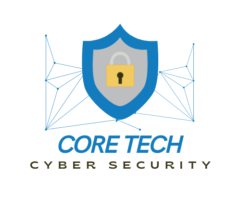As cybersecurity threats grow in complexity, the demand for skilled professionals is rising. Whether you’re just starting out or looking to upgrade your skills, selecting the right cybersecurity course is crucial. The market offers a mix of both free and paid options, each with its own advantages. Here’s a comparison of free and paid cybersecurity courses to help you decide which path suits your needs best.
Free Cybersecurity Courses
Free cybersecurity courses provide an excellent entry point for beginners or individuals looking to get an overview of the field without any financial commitment. While free options may not offer the same depth or certification as paid versions, they still provide valuable learning opportunities.
Pros:
- Cost-effective: Free courses require no financial investment, making them ideal for individuals testing the waters.
- Flexible learning: Most free courses are self-paced, allowing you to learn at your convenience.
- Introduction to essential skills: Free courses cover the basics, which can be enough to build foundational knowledge.
Cons:
- Limited depth: While free courses are great for introductory learning, they often lack advanced topics or in-depth analysis.
- No certification: Many free courses do not provide accredited certification, which may be a disadvantage in job applications.
- Lack of personalized support: Free courses typically do not offer one-on-one mentoring or guidance, limiting the ability to ask detailed questions.
Top Free Cybersecurity Courses:
- Cybrary: Offers free beginner-level cybersecurity courses, with paid options for more advanced content.
- Coursera: Some institutions, like Stanford, offer free cybersecurity training through platforms like Coursera. Paid certification is available upon course completion.
- edX: Many free courses from prestigious universities like MIT and Harvard are available with options to pay for certificates.
Paid Cybersecurity Courses
Paid cybersecurity courses are typically more comprehensive and designed for those serious about pursuing a career in cybersecurity. These courses often come with certificates that are widely recognized by employers, providing you with a competitive edge.
Pros:
- Comprehensive content: Paid courses generally offer in-depth material that covers a wide range of topics, from basic to advanced.
- Accredited certifications: Many paid courses offer certifications that are recognized by industry leaders, helping to boost your employability.
- Instructor support: Paid courses often include personalized support, mentoring, and access to exclusive communities.
Cons:
- Cost: Some paid cybersecurity courses can be expensive, especially for advanced certifications.
- Time commitment: Paid courses are often more structured, which may require a significant time investment.
Top Paid Cybersecurity Courses:
- CompTIA Security+: A globally recognized certification that covers essential cybersecurity skills and is often a requirement for IT security roles.
- Certified Ethical Hacker (CEH): A paid course that dives deep into ethical hacking and penetration testing.
- Certified Information Systems Security Professional (CISSP): One of the most respected certifications in the cybersecurity field, aimed at professionals with several years of experience.
Conclusion
Whether you choose a free or paid cybersecurity course depends on your goals, budget, and current skill level. Free courses are great for gaining a basic understanding, while paid courses offer comprehensive content and certifications that can significantly advance your career.
Get started today with the cybersecurity course that best fits your needs and take the first step toward securing your future in this critical field!
